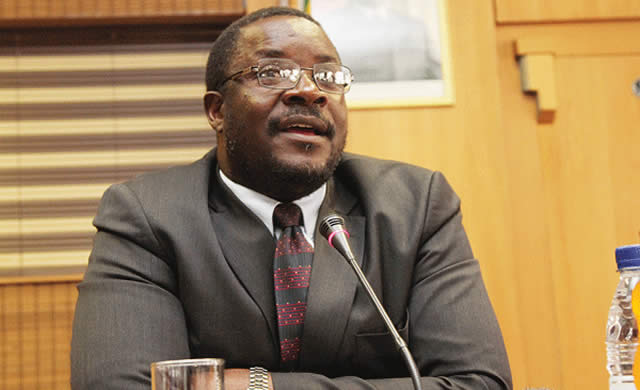ZRP’s 11-point plan . . . Commits to improve relations with public

Herald Reporter
The Zimbabwe Republic Police (ZRP) National Traffic Branch has come up with an 11-point commitment plan to improve relations with members of the public.
According to the plan, the force is making a commitment to shun practices such as withholding motorists’ driver’s licences without the written consent of the owner, detain motorists at roadblock sites unnecessarily and inconveniencing law-abiding motorists, among others.
In a statement recently, the Officer Commanding National Traffic, Senior Assistant Commissioner Isaac Tayengwa, said their mandate was to protect life and property through the enforcement of the Road Traffic Act and related legislation.
“We derive this from Section 219 of our Constitution. As a branch, we have come up with an 11-point commitment plan which is aimed at improving our relations with the public as follows: We will not abuse our authority by engaging in corruption; we shall exhibit appropriate police customer care practices; we shall not withhold motorists’ driving licences without the written consent of the owner; we shall use discretion judiciously and be sensitive to motorists’ genuine plights; and we shall collect no more or less than what is provided in the national deposit fines schedule,” he said.
Snr Asst Comm Tayengwa said: “We shall not detain motorists at roadblock sites unnecessarily; we shall not inconvenience law-abiding motorists; we shall not cause congestion or accidents ourselves during traffic enforcements, but facilitate smooth flow of traffic and pedestrians; we shall all work towards building trust between the police and the general public; and we shall always display our name tags so that the public know who they are dealing with.
“We shall be transparent, accountable and respectful in all our dealings with our collective audience. Let me take this opportunity to express our gratitude for the feedback we receive from the public as they help us to make corrections and improve our service delivery,” he said.
The police force, he said, would continue to train officers in traffic legislation and customer care so that they can interpret the law well and exercise appropriate customer care practices.
“Specifically on customer care, the Public Relations Department also chips in and conducts customer care workshops for our members in all provinces.
“Furthermore, complaints against police are thoroughly and professionally investigated as we value feedback,” Snr Asst Comm Tayengwa said.
Police are still worried by the level of indiscipline in the central business district, especially by commuter omnibus drivers.
“They drive against one-way streets, go through red traffic lights, avoid intersections and overtake dangerously, causing serious and fatal accidents in the process.
“We do traffic enforcements, but the major challenge we face is that when you enforce during peak hours, you cause congestion. We are, therefore, resorting to recording the traffic infringement and recording the registration number plates of the offending vehicles and tracing the owners through Central Vehicle Registry.”
Snr Asst Comm Tayengwa said police has since launched an operation to bring to book drivers who operate vehicles without registration number plates.
“Plateless vehicles should not be on the roads; we are impounding them. Motorists should also be warned that we are recording all the offences they are committing and the long arm of the law will catch up with them,” he said.
The police have partnered with stakeholders such as the City of Harare, the Vehicle Inspection Department, Central Vehicle Registry, Road Motor Transport in an operation code-named “Sunshine City”, which is also targeting touts, illegal pirate taxis and general lawlessness on the roads.











Comments